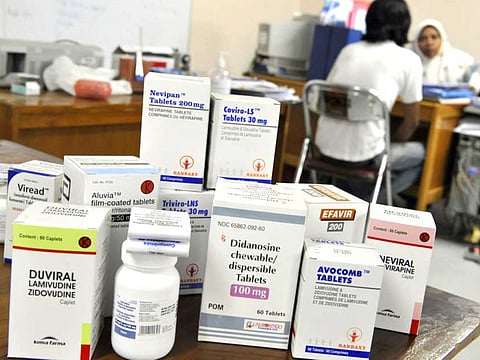We can treat Aids, but only love will beat it
Despite tremendous advances in treatment, too many people with HIV still live in fear and isolation

Aids activism has always been about connecting with people on the margins. Our movement is defined by uplifting those cast aside by society: Reaching out with love, connecting them to a supportive community, and helping them get the care they need. That is the spirit in which thousands of researchers and activists, myself included, will attend the 22nd annual International Aids Conference in Amsterdam next week.
The international community has made remarkable progress in the fight against Aids, in no small part — thanks to this gathering. The past two decades have seen the number of people on treatment for HIV/Aids increase 50-fold. Dramatic medical advances mean that people living with HIV lead full, joyous lives. A diagnosis is no longer a death sentence. Such progress has been made not only thanks to scientific innovations, but also to efforts around the world to fight stigma and social isolation with compassion, dignity and love.
I’ve seen this progress first-hand on my visits to South Africa.
The progress is undeniable, yet our work is far from over. There were 1.87 million new infections in 2016 — and nearly half of those living with HIV that year did not have access to treatment. Medicines may reduce viral loads, but they cannot eliminate the insidious stigma still attached to the disease. And we still face enormous challenges in testing and treating people in remote parts of the world.
But it’s not just geography that isolates people. They are still shamed because they struggle with addiction, still persecuted because of who they love, still cast out because of their gender identity. I can relate to the social isolation caused by addiction, the loneliness and the suffering that causes one to retreat inward. And we have all seen the discrimination, hatred, and even violence that gay people are still subject to around the world.
If we are to end Aids, we must bring those who are suffering back into the circle of humanity. We must recommit ourselves to providing them unconditional love and first-class care. That has been the mission of the Elton John Aids Foundation for the past 26 years — whether we are reaching out to pastoralists in Turkana, imprisoned populations in Ethiopia, or trans people in the American South.
Luckily, we are aided in this work by truly incredible advances. Self-test kits allow people to test whenever and wherever they choose, avoiding the fear of people knowing their status. Lower costs of treatment and simpler regimens have replaced the 50 pills that patients once took each day with just one. And we now have prevention that is more effective than a condom: Pre-exposure prophylaxis (PrEP) can protect people who are vulnerable to HIV infection. Pregnancy treatment has reduced the risk of onward HIV transmission to newborns from 30 per cent to less than 4 per cent. This work saves lives. And it must continue.
As the health community heads to Amsterdam, we will redouble our efforts to reach those still without access to HIV prevention, treatment and care. I’m proud to be joined by Prince Harry, with whom we will partner on a new initiative designed to reduce undiagnosed HIV in young men across sub-Saharan Africa, saving their lives and those of their partners.
We cannot be complacent in this fight. We have to open our arms with love and compassion to all those on the outside, to all those who are remote, geographically and socially. We must not only provide them with treatment and prevention services — we must also embrace them fully as our fellow human beings. When we do so, we will end Aids, once and for all.
— The Telegraph Group Limited, London, 2018
Elton John is an English singer, pianist and composer.



